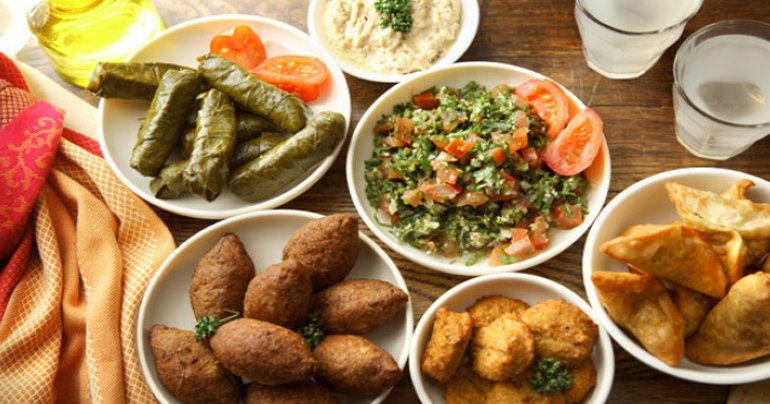
Food Traditions of the Middle East
16 Aug 2015When step into the Middle East, the first thing that catches you eye
is the dichotomy of old and new cultures. It has influences from its
own ancient traditions and has also adopted a few from its European
invaders. Across the Middle East you will experience different
cultures and cuisine. There are as many similarities as there are
differences from country to country in the region. Cuisine in the
Middle East is diverse and changes depending on the country. Some
dishes are specific to one region, and flavoring techniques may change
from country to country.
Typically, Middle Eastern food is flavorful and aromatic, and uses
spices such as cumin, nutmeg, turmeric and caraway to achieve strong
flavors that are unique to the cooking of the region.Similarities
exist, however, and some dishes are popular throughout much of the
Middle East. Olives and chickpeas are frequently used in cooking, and
flat breads such as pita are popular. Since most countries in the
Middle East are primarily Islamic, certain dietary rules are observed.
Alcohol is prohibited in many countries, as are pork products.
Chicken, beef and lamb are popular protein choices, and chunks of
these meats are sometimes skewered with vegetables and cooked as
kebabs. Yogurt and cheeses are specially made and used in cooking.
Soups and side dishes made with lentils, beans, peppers or other
vegetables are often served with a main course.Researched sources also
claim that the area was also influenced by dumplings from Mongol
invaders; turmeric, cumin, garlic and other spices from India; cloves,
peppercorns and allspice from the Spice Islands; okra from Africa; and
tomatoes from the New World, via the Moors of Spain. Religion has also
had an impact on the cuisine; neither Jews nor Muslims eat pork,
making lamb the primary meat.
During the month of Ramadan, food consumption increases dramatically
throughout Muslim communities. Breaking the fast becomes a banquet,
with exchanges of invitations between kin and friends, and public
banquets held by charities and associations. Cafes and pastry shops
are open at night, and a carnival atmosphere prevails in the streets.
Food is a defining factor of every region and Middle Eastern cuisine
has become famous across the world. It is easy today to savour this
cuisine in any part of the world.Food also helps us connect with the
local culture better and is generally used as medium to bond with the
local people and connect with their culture.
you
What people say

A business leader with a clear objective to Build a Legacy through his business acumen and passion to excel, being associated with Dr Tejinder opens up new avenues for learning.

Dr Tejinder Singh , the man who taught me to teach and lead. My first and only professional Guru who would run the mile first and push me to walk that . A wonderful human being and an exceptional professional.

Tejinder is one of the most amazing client/business partner that I have ever met.

I met Bhattia sahib once and found him very friendly,intelligent and very focused head of an efficient organisation.

In my association with Tejinder I have found him to be very frank in his views.He is very strong in his domain knowledge and also has sharp commercial acumen.

I was hired by Tejinder Sir, in the year 2003, which was also the turning point in my career.

My 1st Impression about Mr. Tejinder Singh Bhatia - An Exteremely Confident Professional, Who knows What he is Doing and Where he wants to Reach.

He was a dedicated and sincere person and always followed pragmatic approach while fulfilling his job responsilbilites.

I am priviledge to work under him, he is an excellent Leader where team always ready to work for him even at oddest hour of the day.